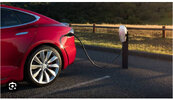- Joined
- 28 May 2020
- Posts
- 7,050
- Reactions
- 13,718
Commercial vehicle have always been and continue to be exempt from the all singing all powerful emission standards released yesterday that will be a win win for everyone according to the government.@mullokintyre @SirRumpole @qldfrog
I was reading over some Tax rules yeaterday, and I came across an interesting point that relates to the question about why Utes are popular in Australia when it comes to business.
I realised that Utes are classified as “commercial vehicles” so they receive much better tax treatment than a Car or SUV.
if you own a car or SUV you are limited to claiming 5000 kms per year or filling out a log book , and you can’t claim personal use and you are subject to Fringe Benefits Tax.
So from a Tax perspective, if you own a business or have a salary package that includes vehicle you are much better of with a UTE, than a car If you plan on using it for a lot of personal things.
View attachment 170274
View attachment 170275
Mick

